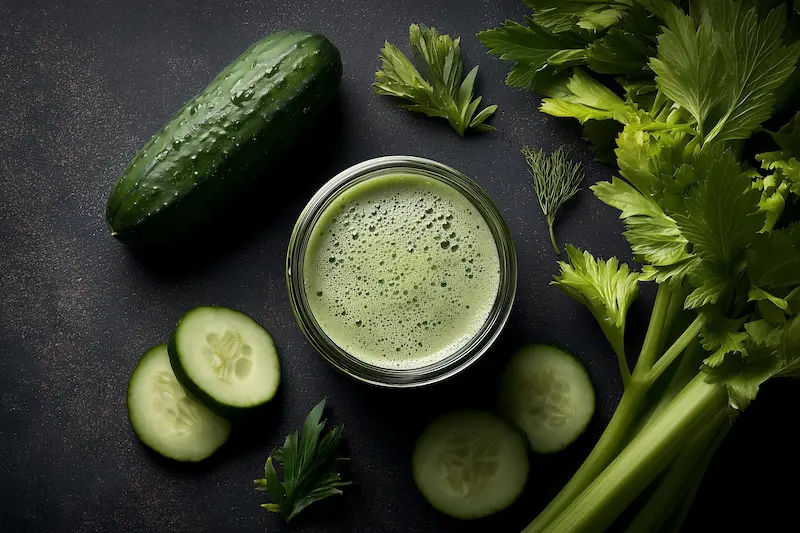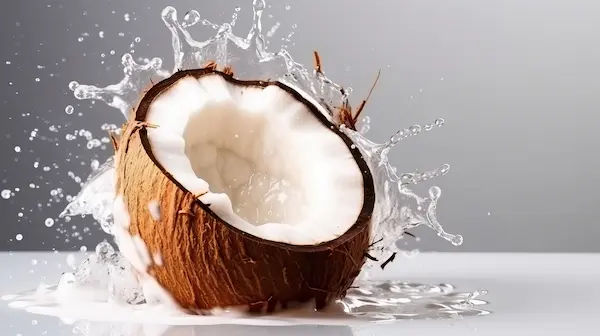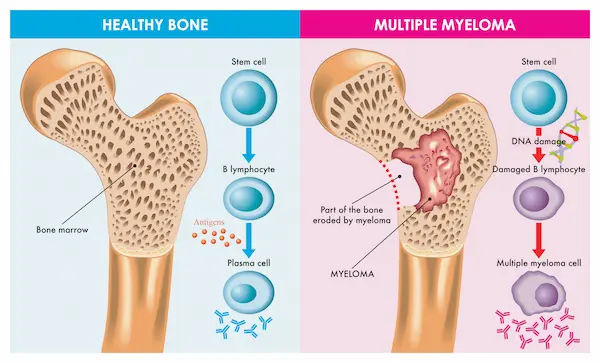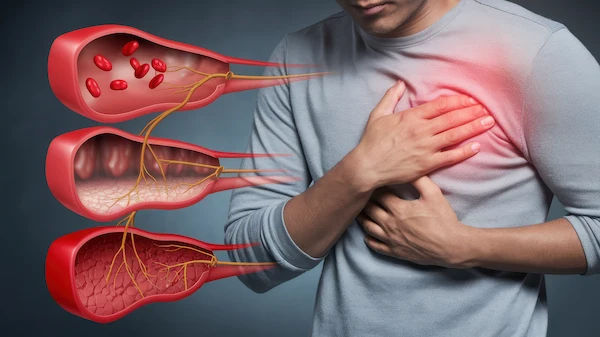Mechanical vs. Tissue Heart Valves: A Guide to the Right Choice
Compare mechanical and tissue heart valves to understand their benefits, risks, and suitability. This guide helps patients and caregivers make informed decisions for the best heart valve replacement option.

Written by Dr. Siri Nallapu
Reviewed by Dr. D Bhanu Prakash MBBS, AFIH, Advanced certificate in critical care medicine, Fellowship in critical care medicine
Last updated on 13th Jan, 2026

Facing the prospect of heart valve replacement can feel overwhelming. Your heart valve is a crucial component of your circulatory system, and when it fails, choosing a suitable replacement is one of the most critical decisions you and your medical team will make. The central question often boils down to this: should you opt for a long-lasting metallic mechanical valve or a natural tissue-based one? This isn't a one-size-fits-all answer. The best choice depends on a delicate balance of your age, lifestyle, overall health, and personal preferences. This guide will walk you through the key differences, advantages, and trade-offs between mechanical and tissue heart valves. We'll break down the medical jargon into clear, understandable information to empower you for the conversations ahead with your cardiac specialist.
Why Would You Need a Valve Replacement?
Heart valves ensure blood flows in one direction through your heart's chambers. They can malfunction in two primary ways: stenosis (narrowing, which restricts blood flow) and regurgitation (leaking, which allows blood to flow backward). These conditions force your heart to work harder, leading to symptoms like shortness of breath, fatigue, chest pain, and fainting. If left untreated, severe valve disease can lead to heart failure. Common causes include age-related wear-and-tear (calcification), congenital defects, infections like endocarditis, and other heart conditions.
The Two Main Paths: Mechanical and Biological Valves
When repair isn't possible, replacement becomes necessary. Surgeons primarily use two types of prosthetic valves:
1. Mechanical Valves: Artificially manufactured from durable materials like carbon and titanium.
2. Biological Valves (Tissue Valves): Crafted from biological material, typically from a cow (bovine), pig (porcine), or a human donor (homograft or allograft).
The choice between these paths represents a fundamental trade-off: durability versus quality of life.
Mechanical Heart Valves: The Durable Option
Mechanical valves are engineered for performance and longevity. They are typically made from pyrolytic carbon and titanium, materials designed to be exceptionally strong and biocompatible. They function with either a tilting disc or a double-leaflet (two semicircular discs) design that opens and closes with each heartbeat, mimicking the action of a natural valve.
The most significant benefit of a mechanical valve replacement is its durability. These valves are built to last a lifetime. They are structurally robust and highly resistant to wear and tear. For a young patient, this means a high degree of certainty that they will not need a second valve surgery down the line due to the valve itself wearing out. This makes them a very suitable option for patients under 60, for whom a tissue valve would almost certainly degenerate within their lifetime.
The Reality of Managing Warfarin
The foreign, non-biological surface of mechanical valves is highly prone to forming blood clots. To prevent this life-threatening complication, patients with mechanical valves must take lifelong anticoagulant medication, most commonly warfarin (Coumadin). This requires a significant lifestyle adjustment. Patients must have their blood's clotting time (measured as INR) checked frequently—initially weekly, then potentially monthly once stable—to ensure the dose is correct.
Risks of Bleeding and Clotting
This creates a tightrope walk. If the INR is too low, there's a risk of clot formation on the valve, which can cause a stroke or valve malfunction. If the INR is too high, there's an increased risk of serious bleeding from minor injuries or spontaneous bleeding. Activities with a high risk of trauma contact sports become ill-advised. Furthermore, warfarin interacts with many foods (particularly vitamin K-rich greens) and medications, requiring constant vigilance.
Tissue (Biological) Heart Valves: The Natural Alternative
Sources: Animal-Derived and Human Donor Valves
Tissue valves offer a more natural solution. Porcine valves are taken from pigs and treated to prevent rejection. Bovine valves are crafted from the pericardial sac (the tissue surrounding the heart) of a cow and mounted on a flexible frame. Human donor valves (homografts) are another option, often used for specific infections like endocarditis.
The Biggest Benefit: No Lifelong Blood Thinners
The premier advantage of a tissue valve is its biocompatibility. Because the tissue is natural, it is less likely to cause blood clots. This means most patients only need to take blood thinners (anticoagulants) for a short period (typically 3-6 months) after surgery until the heart fully heals around the new valve. After that, they can discontinue them, eliminating the need for frequent INR monitoring and significantly reducing the risk of bleeding complications. This is a major freedom and a key reason many patients choose this path.
The Primary Drawback: Limited Lifespan
Unlike their metallic counterparts, tissue valves are not designed to last forever. They are subject to wear and degeneration over time. Calcium and other minerals from the blood can slowly deposit on the leaflets, causing them to stiffen and eventually fail, typically after 10 to 15 years. The rate of degeneration is faster in younger, more active patients. This means a patient opting for a tissue valve in their 50s or 60s must accept the high probability of needing a replacement procedure later in life. This second surgery, while common, carries higher risks than the first.
Consult Top Specialists
Key Factors in Choosing Your Valve
Factor 1: Your Age and Life Expectancy
This is the single most influential factor. Current guidelines generally recommend:
- Under 50: Mechanical valves are strongly preferred due to their longevity, avoiding the near-certainty of a reoperation.
- 50-65: This is the "gray zone." The decision is highly individualized, weighing the desire to avoid warfarin against the willingness to face a second surgery.
- Over 65-70: Tissue valves are often the preferred suitable choice. The valve's lifespan is more likely to match the patient's, and avoiding warfarin is beneficial in older age where fall and bleed risk is higher.
Factor 2: Your Lifestyle and Preferences
Your daily life plays a huge role. Do you have a very active lifestyle with a risk of injury? Are you planning a pregnancy (warfarin poses serious risks to a fetus)? Do you have a job that makes regular INR monitoring difficult? Do you simply have a strong aversion to taking daily medication long-term? These personal preferences must be discussed openly with your doctor.
Factor 3: Underlying Medical Conditions
Pre-existing conditions like a history of bleeding ulcers, a tendency to fall, or kidney disease may make warfarin therapy too dangerous, nudging the decision toward a tissue valve. Conversely, a history of clotting disorders might influence the decision differently.
Factor 4: Surgical Risk and Future Procedures
If you have other health issues that make open-heart surgery very high-risk, a tissue valve implanted via a minimally invasive TAVI procedure (for aortic valves) might be the best suitable option, even if you are younger.
Beyond the Binary: TAVI and the Ross Procedure
Transcatheter Aortic Valve Implantation (TAVI)
Also known as TAVR, this is a revolutionary minimally invasive procedure for failing aortic valves. A new tissue valve is mounted on a stent and delivered to the heart via a catheter, typically through an artery in the groin. It is a game-changer for high-risk and elderly patients who cannot undergo open-heart surgery. It is also now being evaluated for use in younger, lower-risk patients.
The Ross Procedure: Swapping Your Own Valves
This complex operation involves replacing a diseased aortic valve with the patient's own pulmonary valve (an autograft) and then replacing the pulmonary valve with a donor homograft. The advantage is that the living aortic valve can grow with a young patient and does not require anticoagulation. However, it is a double-valve procedure and requires a highly skilled surgeon. If you are considering a complex procedure like this, consulting a specialist surgeon through a platform like Apollo24|7 can help you understand your options and connect with the right expertise.
Life After Valve Replacement Surgery
Recovery and Rehabilitation
Recovery from open-heart surgery takes time—typically several weeks to months. Cardiac rehabilitation, a supervised program of exercise and education, is crucial for regaining strength, improving heart health, and reducing recovery time.
Long-Term Monitoring and Care
Regardless of your valve type, lifelong cardiology follow-up is essential. This includes regular echocardiograms to monitor valve function. For mechanical valve patients, consistent INR monitoring is a lifelong commitment. For tissue valve patients, vigilant monitoring for signs of valve degeneration begins as the valve ages.
Conclusion
Choosing between a mechanical and a tissue heart valve is a significant decision that balances longevity against lifestyle. There is no universally "right" answer—only the best suitable choice for you as an individual. A metallic valve offers freedom from reoperation but binds you to the discipline of anticoagulation therapy. A tissue valve offers freedom from blood thinners but likely binds you to another surgery in the future.
This guide provides a foundation for understanding the pros and cons, but it is not a substitute for professional medical advice. The most important step is to engage in detailed, open conversations with your healthcare team. Be sure to consult your cardiac surgeon and cardiologist to discuss your specific case, ask every question you have, and make an informed decision that aligns with your health goals and how you want to live your life. Platforms like Apollo24|7 can facilitate these consultations, allowing you to get expert opinions and clarify your doubts from the comfort of your home before proceeding.
Consult Top Specialists
Consult Top Specialists

Dr. Anand Ravi
General Physician
2 Years • MBBS
Bengaluru
PRESTIGE SHANTHINIKETAN - SOCIETY CLINIC, Bengaluru

Dr. Tripti Deb
Cardiologist
40 Years • MBBS, MD, DM, FACC, FESC
Hyderabad
Apollo Hospitals Jubilee Hills, Hyderabad
Dr Moytree Baruah
Cardiologist
10 Years • MBBS, PGDCC
Guwahati
Apollo Clinic Guwahati, Assam, Guwahati

Dr. Zulkarnain
General Physician
2 Years • MBBS, PGDM, FFM
Bengaluru
PRESTIGE SHANTHINIKETAN - SOCIETY CLINIC, Bengaluru

Dr. E Prabhakar Sastry
General Physician/ Internal Medicine Specialist
40 Years • MD(Internal Medicine)
Manikonda Jagir
Apollo Clinic, Manikonda, Manikonda Jagir
(150+ Patients)
Consult Top Specialists

Dr. Anand Ravi
General Physician
2 Years • MBBS
Bengaluru
PRESTIGE SHANTHINIKETAN - SOCIETY CLINIC, Bengaluru

Dr. Tripti Deb
Cardiologist
40 Years • MBBS, MD, DM, FACC, FESC
Hyderabad
Apollo Hospitals Jubilee Hills, Hyderabad
Dr Moytree Baruah
Cardiologist
10 Years • MBBS, PGDCC
Guwahati
Apollo Clinic Guwahati, Assam, Guwahati

Dr. Zulkarnain
General Physician
2 Years • MBBS, PGDM, FFM
Bengaluru
PRESTIGE SHANTHINIKETAN - SOCIETY CLINIC, Bengaluru

Dr. E Prabhakar Sastry
General Physician/ Internal Medicine Specialist
40 Years • MD(Internal Medicine)
Manikonda Jagir
Apollo Clinic, Manikonda, Manikonda Jagir
(150+ Patients)
More articles from General Medical Consultation
Frequently Asked Questions
Can you hear a mechanical heart valve tick?
Yes, many patients with mechanical valves report hearing a quiet ticking sound, which is the valve leaflets opening and closing. It is usually most noticeable in quiet environments and most people find they become accustomed to it over time.
What is the life expectancy after a heart valve replacement?
Life expectancy is influenced more by your overall health, heart function, and age than by the valve type itself. With successful surgery and proper post-operative care, most patients can expect a near-normal life expectancy. The goal of the surgery is to restore normal heart function and improve both quality and length of life.
Are there any new synthetic valves that don't require blood thinners?
Researchers are actively working on developing mechanical valves with new materials (e.g., polymer-based) that are less thrombogenic and may not require aggressive anticoagulation. However, as of now, no such valve is approved for widespread clinical use. All current mechanical valves mandate lifelong blood thinners.
How long does a TAVI valve last?
Current data suggests that TAVI valves have a durability similar to surgical tissue valves, typically in the 10-15 year range. However, since TAVI is a newer procedure, long-term data beyond 15 years is still being collected.
Is valve replacement surgery safe?
Aortic valve replacement is a common and generally safe procedure, but it is major open-heart surgery and does carry risks, including bleeding, infection, stroke, heart attack, and arrhythmias. The overall risk depends heavily on the patient's age, overall health, and the complexity of the surgery. Your surgical team will carefully assess your individual risk beforehand.




